Is Sunscreen Bad for You? TikTok’s Anti-SPF Movement, Explained
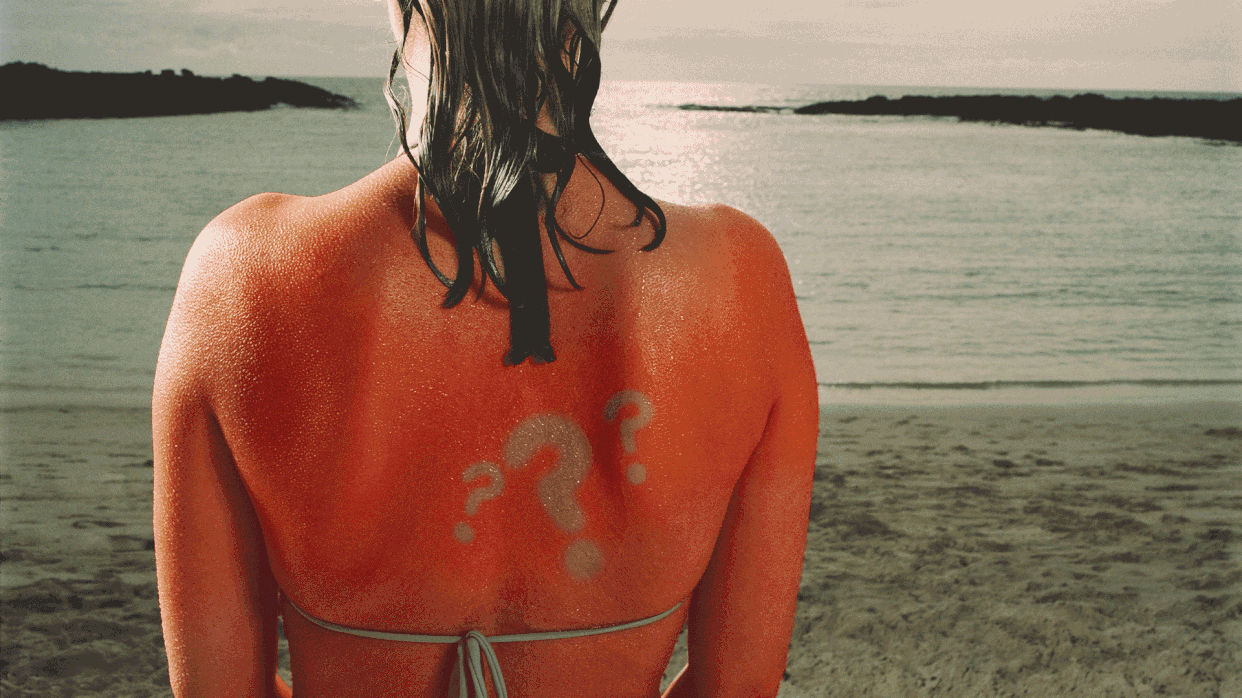
Animation by Channing Smith. Photo courtesy of Getty Images.
WellnessTok has done it again. After convincing people to shampoo once monthly and tan with nasal spray, it now has users asking: Is sunscreen bad for you?
That may seem like a strange query to have when we live in such a pro-sunscreen, anti-UV ray—and post-tanning-bed—day and age. But the same platform that gave us the debunked nutrition “hack” Oatzempic has become a hotbed for anti-SPF misinformation, leading many users to believe influencer claims that sunscreen is not just unnecessary, but actively harmful and potentially cancer-causing.
However there has been no evidence indicating that it does. “Sun damage can lead to skin cancer, but the FDA has not found that sunscreens cause cancer,” Brendan Camp, MD, double-board-certified dermatologist at NYC’s MDCS Dermatology, confirms.
If you’re still thinking, But the chemicals!…well, there’s nothing wrong with considering non-chemical SPF options, either, if only for the environment. But since viral misinformation tends to lack nuance, it can be tough to figure out what’s what.
Ahead, we asked board-certified dermatologists and plastic surgeons to debunk this harmful trend.
Why do people think sunscreen is bad for you?
As noted above, the FDA has not found evidence of sunscreen causing cancer, though the agency did find that some ingredients found in chemical sunscreen may remain in the body after use.
“As documented in a recent FDA study, chemical sunscreens, with active ingredients like oxybenzone, octocrylene, octinoxate, homosalate, and avobenzone, are applied to the skin and then can remain in the blood plasma at significant levels for days to weeks after application,” says Madhu Shetti, MD, a board-certified radiation oncologist specializing in cancer diagnosis and treatment, who is founder and CEO of skin care maker Balmere. However, according to Dr. Camp, “The American Academy of Dermatology released a statement that more research is needed to determine if the absorption has any effects on a person’s health.”
What’s more, “Just because an ingredient is absorbed into the bloodstream does not mean that it is harmful or unsafe,” Dr. Camp clarifies. “More research is needed to evaluate the effects of certain sunscreen filters on internal organ systems, though recent studies do not point to a clear link between these products and health problems.”
Much of the anti-sunscreen movement comes down to misinformation—which is largely due to social media users claiming to be doctors.
Dr. Keith Kimberlin for example, who recently shared video in which he claimed that most sunscreen “is toxic” and “more dangerous than [sun]burning,” is a chiropractor with a doctorate of chiropractic degree (DC). Kristen Cavallari’s naturopath, Dr. Ryan Monahan—who shares and is seemingly responsible for some of Cavaralli’s anti-sunscreen views—has a doctorate in acupuncture and oriental medicine (DAOM), while Dr. Andrew Huberman, who claimed “there’s stuff in sunscreen that goes to your brains,” has a doctorate of philosophy—or PhD—in neuroscience.
These degrees do make them doctors, though their qualifications are not comparable to those of medical doctors (MDs), such as dermatologists or plastic surgeons, who have graduated from medical school. “Board-certified dermatologists are the only physicians with advanced medical training and certification to diagnose and treat conditions that affect skin, hair, and nails,” Dr. Camp says.
Is sunscreen bad for you?
To put it simply, no—and any conflicting information about the overall safety of sunscreen lacks significant scientific support, says Sachin M. Shridharani, MD, FACS, a board-certified plastic surgeon at New York City’s Luxurgery and an international authority on aesthetic plastic surgery treatments and techniques.
“This increased some of the conversation, even confusion, in the lay public regarding sunscreen,” Dr. Shridharani explains. “However, to our knowledge as a medical community, many of those views have not been studied with high relevance and good clinical trials to show that the risks of applying sunscreen outweigh the benefits.”
Indeed, while there is no actual proof that sunscreen “is bad for you” or causes cancer, there is substantial evidence affirming the risks of not using it.
“I think it’s pretty clear that excess sun exposure would be much more dangerous considering the high rates of basal cell carcinoma, squamous cell carcinoma, and melanoma,” Dr. Shridharani continues. “All three of these skin cancers—which have all been directly linked to excess sun exposure—can be incredibly dangerous, and either are or can turn life-threatening when untreated or when caught later on.”
And seeing as an estimated 9,500 people in the US are diagnosed with skin cancer every day, per the AAD, Dr. Shetti strongly encourages wearing it anyway.
“Think of three people that mean the world to you—maybe it’s your child, your best friend, your mom. One in three people will develop cancer in their lifetime, so someone you love will be touched by cancer,” says Dr. Shetti. “If you can prevent the most common type of cancer—skin cancer—simply by wearing sunscreen, why not?”
Does sunscreen prevent you from getting enough vitamin D?
According to Angela Jia Kim, founder and CEO of Korean-inspired Savor Beauty, much of the anti-sunscreen messaging stems from concerns about vitamin D deficiency and “the spread of misinformation online which emphasizes the natural benefits of sun exposure while downplaying the risks of skin cancer and sun damage.”
However, contrary to what WellnessTok believes, wearing sunscreen will not block absorption of vitamin D. “Many people believe sunscreen prevents adequate vitamin D production, even though studies show that it does not significantly affect vitamin D levels,” Kim explains.
“Getting appropriate sunlight while wearing sunblock doesn’t create enough of a physical block for you to not be able to get the appropriate conversion of the sunlight into the vitamin D3 that we want,” says Dr. Shridharani. “If you’re putting on all of your sunscreen perfectly, even with 50 SPF, you still have 2% to 3% of the raise of UVB (ultraviolet B rays) that are going to be able to seep through the sunscreen.”
As for how to balance adequate vitamin D and sun exposure? “The general recommendations are to spend short periods of time in the sun, about 10 to 30 minutes several times a week, depending on your skin type and your latitude,” says Body+Beauty Lab esthetician Leigh-Ann Dolan. “It’s not recommended to go out and bake yourself for hours at a time, but to spend a few minutes out of your day to get some physical activity in the sun.”
Still concerned? Add more vitamin D to your diet. “The AAD recommends that healthy adults should obtain an adequate amount of vitamin D from a diet that includes foods naturally rich in vitamin D and/or foods and beverages fortified with vitamin D,” says Dr. Camp. “The academy states that this approach gives you the vitamin D you need without increasing your risk for skin cancer.” Another option is to consider vitamin D supplements.
Does drinking water prevent sunburn?
Some TikTok users have claimed that staying well-hydrated can prevent sunburn. This is not true.
“The idea that drinking water prevents sunburn is a myth,” says Kim. “While staying hydrated is essential for overall health, it does not protect your skin from UV damage. Proper sun protection involves using sunscreen, wearing protective clothing, and as my mom always says, walking on the shady side of the street.”
Is mineral sunscreen better than chemical sunscreen?
Several WellnessTok “clean living” and “holistic” content creators have made videos claiming chemical sunscreens are “toxic” and contain “dangerous chemicals,” asserting that mineral sunscreen is superior for overall health–or at the very least, skin sensitivities. However, there is little to no evidence proving this.
“As much as we’d like to use different products that may not be as modified or chemical in nature, there is not a tremendous amount of data showing us that these are dangerous to be able to use,” says Dr. Shridharani, noting that there “aren’t great studies that have shown that those chemicals are incredibly harsh on the skin,” either.
That said, there are plenty of good reasons to consider mineral sunscreen instead. “In general, using sunscreen is safe and essential for protecting your skin from harmful UV rays. However, some sunscreens contain chemicals like oxybenzone and octinoxate that may create hormonal dysregulation and negative environmental impact,” Kim explains. “Opting for mineral sunscreens with zinc oxide or titanium dioxide can minimize these risks while still providing protection.”
Mineral sunscreens also make for a “reef-friendly” option, says Dolan. “Mineral sunscreens are considered safer for the environment, and particularly marine life, as they are less likely to cause coral bleaching than chemical sunscreens are,” she says.
That’s because “non-nano” ingredients like zinc oxide and titanium dioxide are “considered safe for reefs and marine life because smaller particles (nano) may be ingested by marine life,” explains Dr. Camp.
Getting sunshine safely
“Sun protection is a multilayered approach,” says Dr. Shetti. “I recommend using broad-rimmed hats, wearing UV protective clothing, avoiding peak hours–which are 10am- 2pm–and using a pure mineral non-nano zinc sunscreen.
“Remember, we need just 5 to 30 minutes of sun exposure daily to fulfill our vitamin D intake,” she says. So go enjoy some sunshine; just be sure to do so safely and for short periods of time.
Shop Glamour’s favorite mineral sunscreens and tinted moisturizers below.

Coola Organic Suncare Travel Set
$25.00, Nordstrom
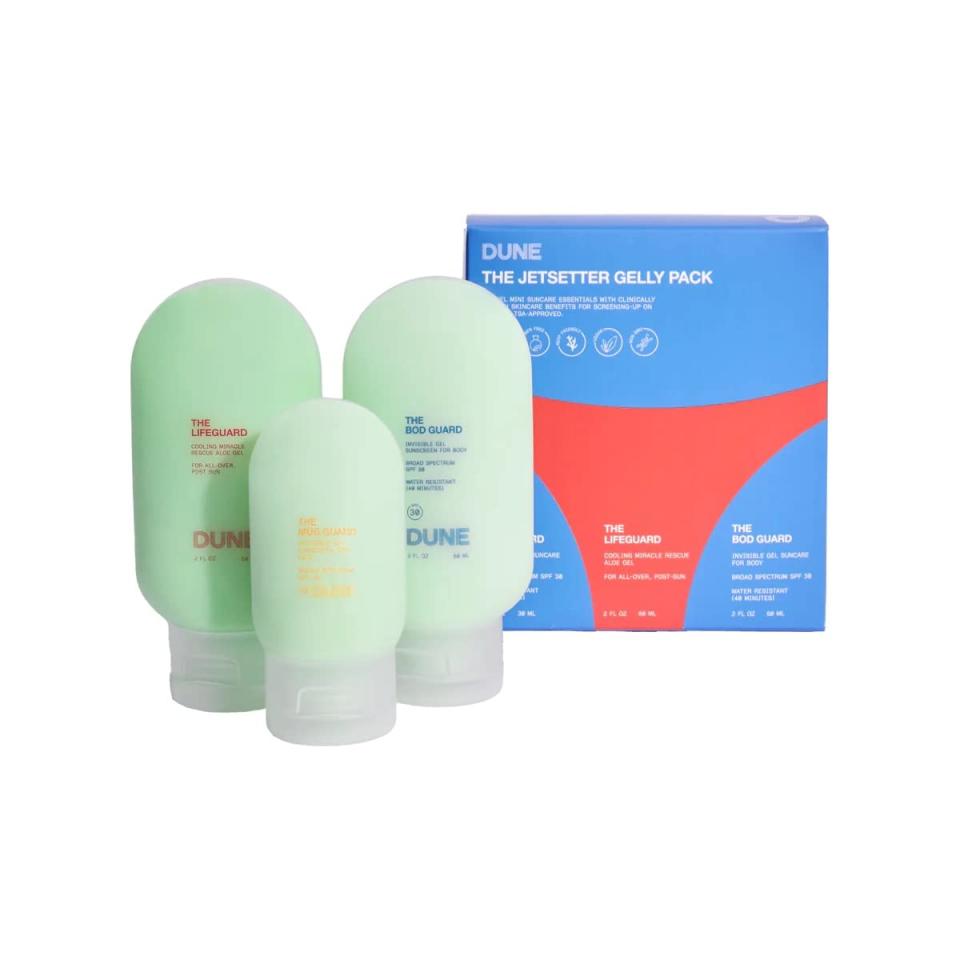
Dune Suncare The Jetsetter Gelly Pack
$30.00, Nordstrom
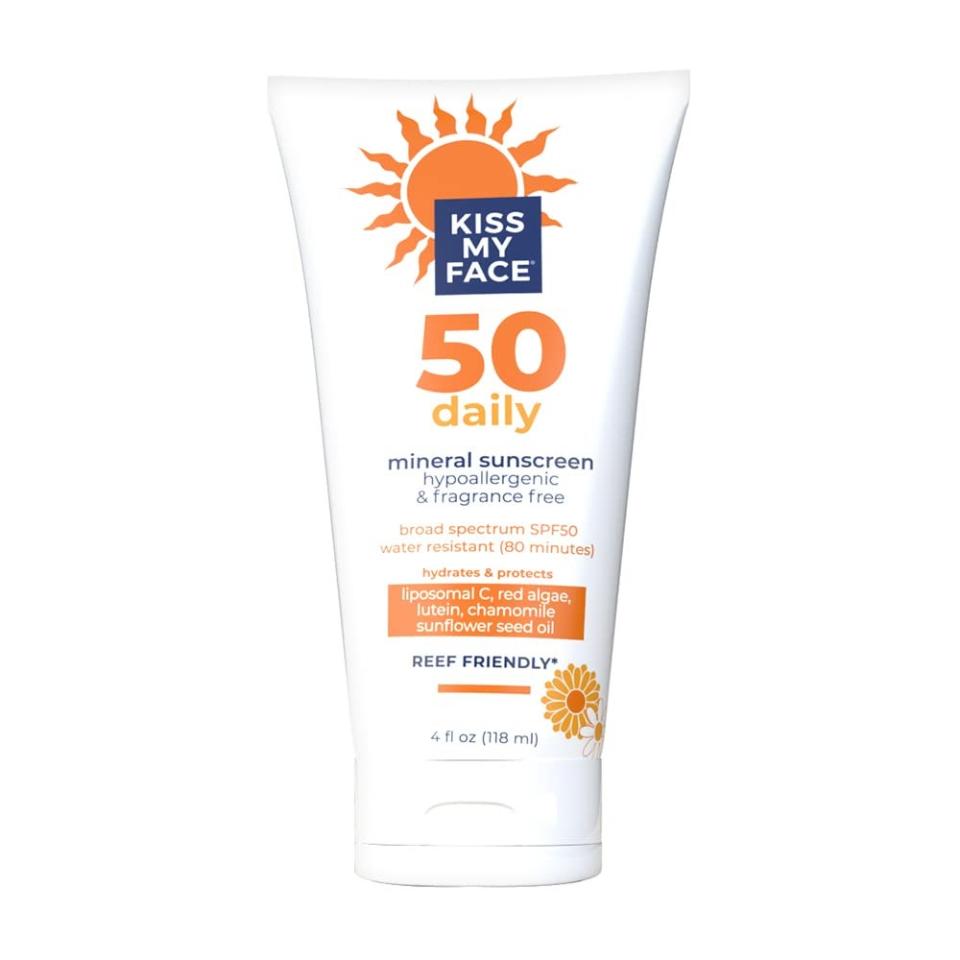
Kiss My Face Daily Sunscreen Lotion SPF 50
$16.00, Amazon
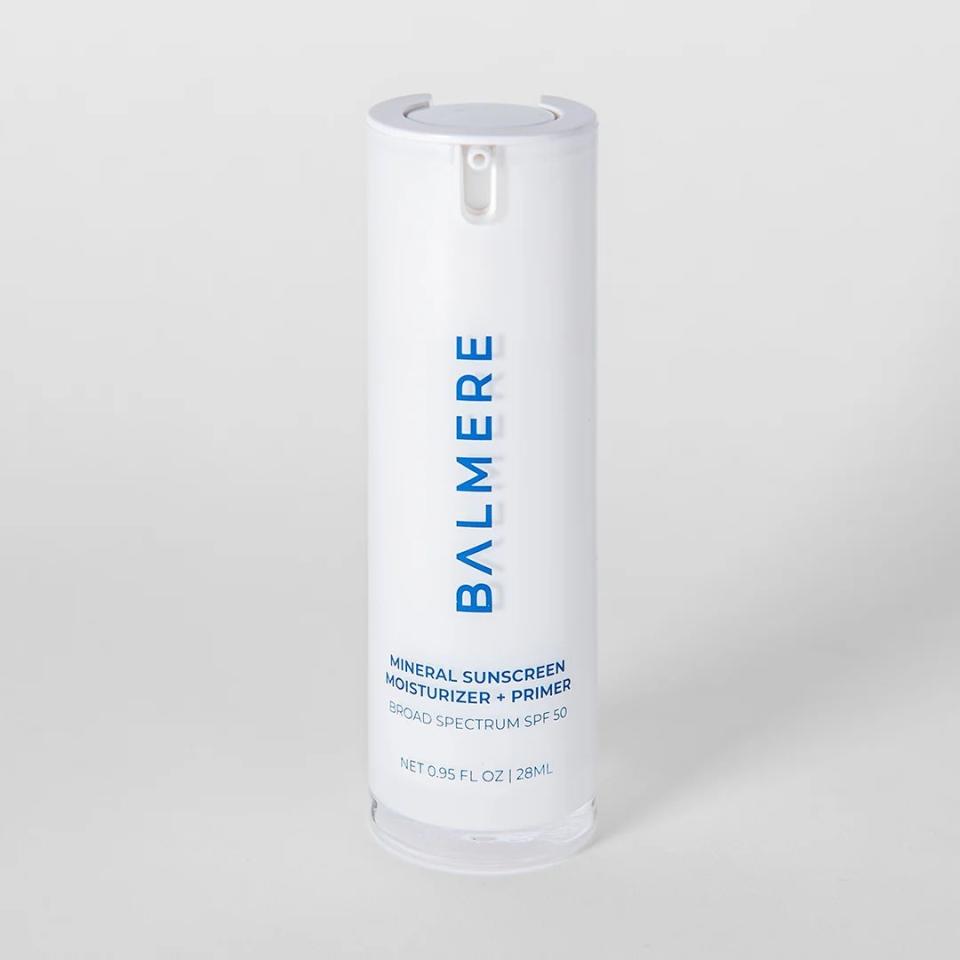
Balmere Daily Mineral Sunscreen
$59.00, Balmere

Kosas DreamBeam Silicone-Free Mineral Sunscreen
$40.00, Sephora

Colorescience Sunforgettable Total Protection Face Shield Flex SPF
$49.00, Dermstore
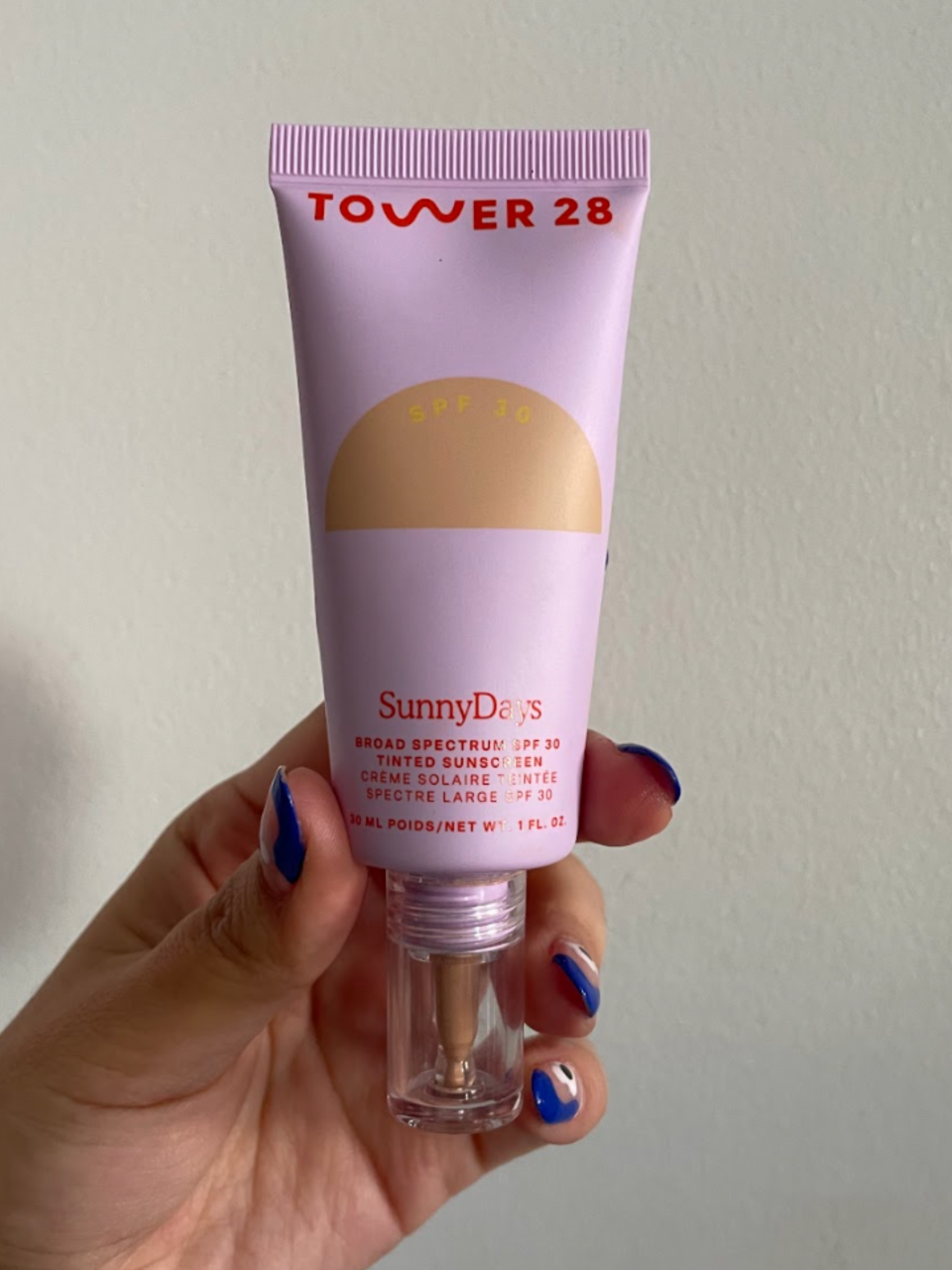
Tower 28 Beauty SunnyDays SPF 30 Tinted Sunscreen Foundation
$32.00, Sephora

Live Tinted Hueguard 3-in-1 Broad Spectrum Mineral SPF 30
$34.00, Ulta
Danielle Sinay is the associate beauty editor at Glamour. Follow her on Instagram @daniellesinay.
Originally Appeared on Glamour

